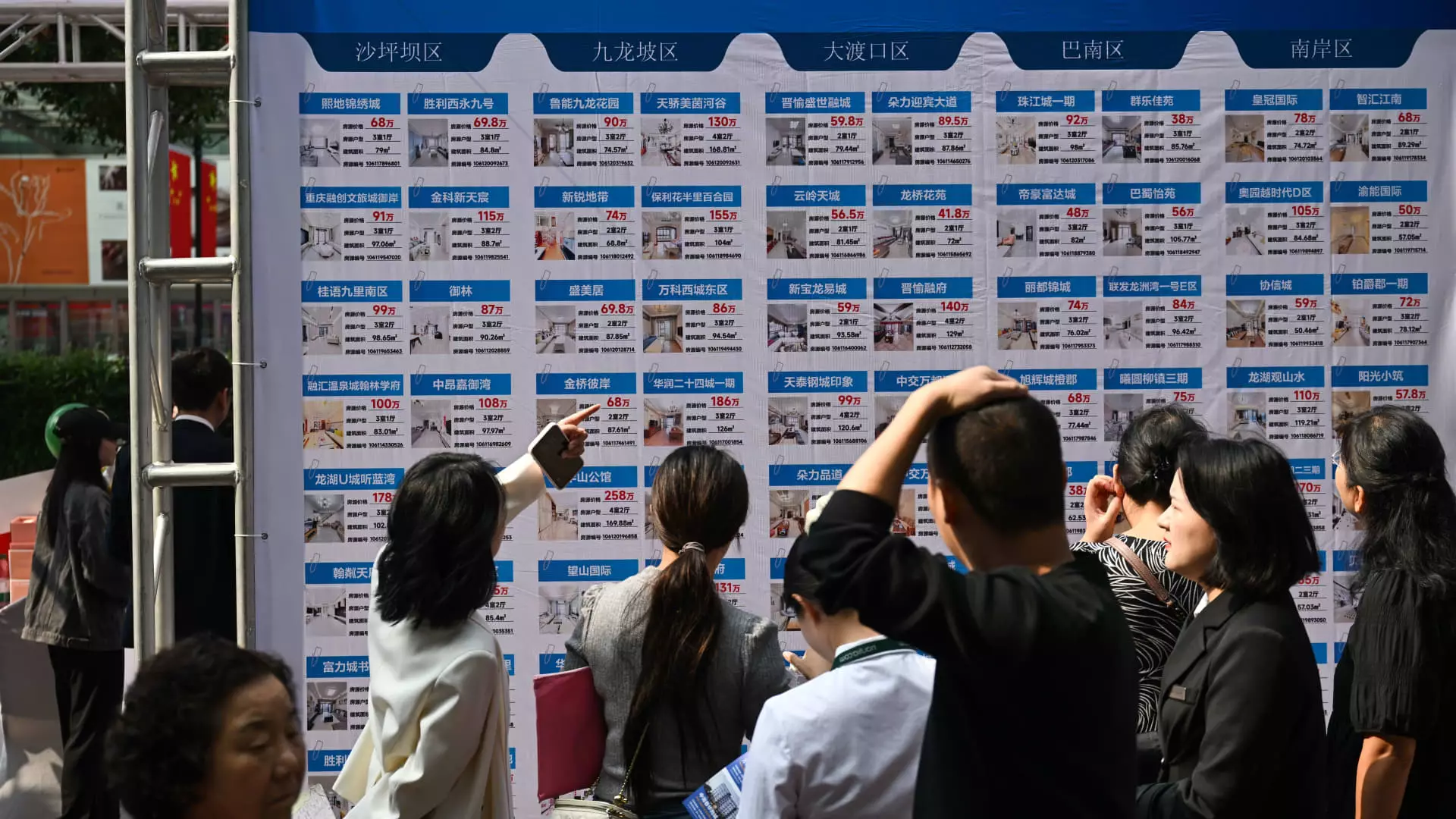China’s real estate sector is undergoing a transformative phase amidst ongoing economic pressures and a fluctuating property market. Major developers are grappling with a landscape markedly distinct from the halcyon days of rapid expansion. Housing transaction and service platforms like KE Holdings (ticker: BEKE) are now in the spotlight, as analysts and investors seek to pinpoint opportunities that could emerge from this changing environment.
KE Holdings, commonly referred to as Beike in China, operates the Lianjia platform, which has gained traction among apartment renters in urban centers such as Beijing and Shanghai. The company has shown an impressive surge in its U.S.-traded shares, climbing 38% in 2024, contrasting sharply with a mere 3% rise in a broader index of Chinese property stocks in Hong Kong during the same timeframe. This disparity highlights growing investor confidence in Beike’s infrastructure and its ability to adapt to the shifting dynamics of the market.
In a concerted effort to stabilize the real estate sector, the Chinese government has introduced various support measures aimed at invigorating housing transactions. A pivotal meeting led by President Xi Jinping in late September underscored this commitment, focusing on halting the market’s decline and rejuvenating growth. Just days later, the People’s Bank of China announced rate cuts for existing mortgage holders, further signifying a shift towards pro-active fiscal policy.
These support measures have seemingly fostered a positive environment for KE Holdings, with analysts like those at Jefferies emphasizing the company’s potential to gain traction in both existing and new home transactions. Their analysis posits that the company is well-positioned to capitalize on various business segments, including renovations and rental services, suggesting a robust foundation for future growth.
Despite the optimistic outlook bolstered by governmental efforts, industry experts caution against an overly sanguine perspective. Richard Tang of Julius Baer warns that while there may be marginal improvements reflected in holiday sales data, the overarching recovery in China’s property market is likely to be drawn out and complex. He highlights the critical shift facing developers: a move away from pre-sales of unfinished properties to dealing with an oversupply of existing, older homes amidst an aging population.
This transformational shift presents unique challenges that require developers to recalibrate their strategies. As the landscape evolves, it is clear that the reliance on pre-sale transactions is becoming increasingly untenable. Investors are urged to remain vigilant, as the market could continue to fluctuate in response to economic indicators and consumer sentiment.
Analysts’ Perspectives on KE Holdings
While cautious on the overarching market recovery, analysts continue to find value in KE Holdings’ positioning. Bank of America’s recent evaluation highlighted the company’s outsized market share in new and existing home brokerage, with strong connections to a vast network of property agencies. This entrenched market presence indicates potential resilience even amid turbulent market conditions.
However, analysts also expressed reservations regarding sustainable growth. The sentiment echoed by Bank of America reveals a concern that home prices could face a further decline of approximately 10% before stabilizing, calling into question the future expectations of home buyers. Despite these challenges, KE Holdings is viewed as a potential beneficiary of policy easing, particularly within China’s most affluent urban markets, which account for a substantial portion of Beike’s existing transaction volume.
Goldman Sachs analysts noted that KE Holdings holds an attractive position in light of recent policy adjustments, with the potential eligibility for inclusion in the connect program that allows mainland investors to trade Hong Kong stocks. This potential development could serve as a catalyst for the company’s stock performance.
The analysts’ reports illuminate KE Holdings’ resilience, backed by a robust cash reserve of $10.5 billion as of June 2024 and a commitment to returning value to shareholders through buybacks and dividends. With their price target reflecting significant upside potential, the overall outlook for KE Holdings remains cautiously optimistic.
KE Holdings presents itself as a compelling entity within a challenging Chinese real estate landscape. While uncertainties abound, the company’s strategic business maneuvers, combined with governmental support, could pave the way for a more sustained recovery in the property market. As investors keenly watch for indicators of stability, BEKE may represent a pivotal opportunity to navigate the new normal in China’s evolving real estate sector.

